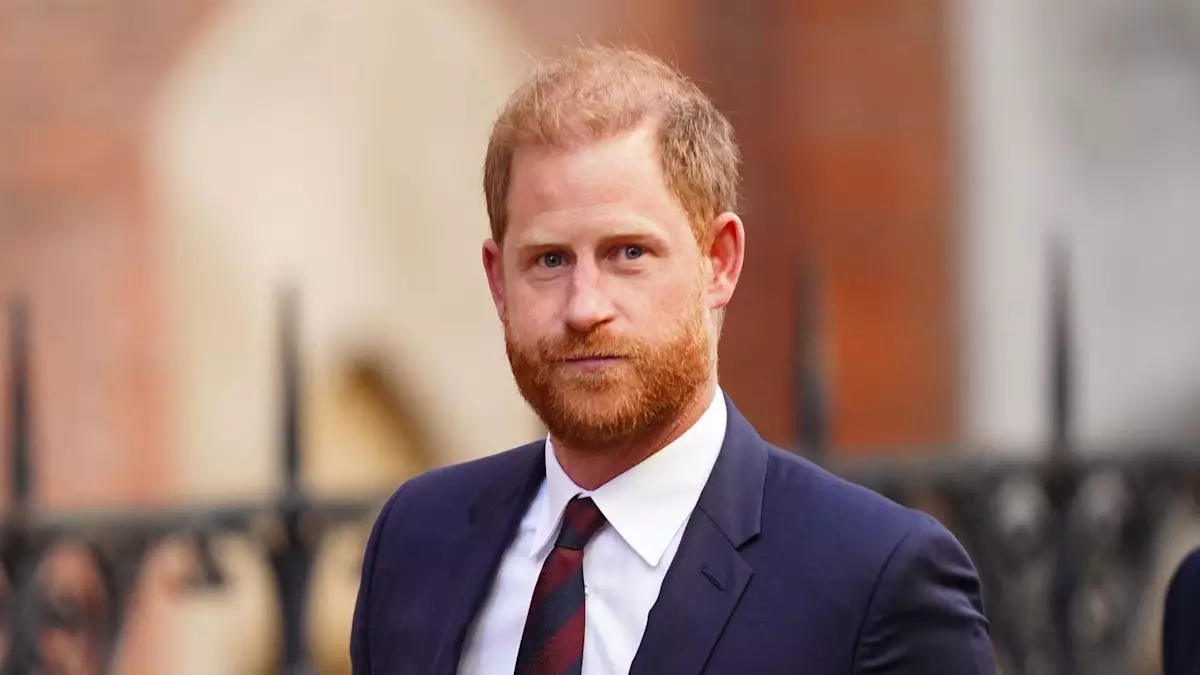As the Duke of Sussex, Prince Harry has captivated the public’s attention, but the shimmering façade of royal life comes with profound emotional baggage. In a recent court case against the Home Office, Harry revealed feelings of overwhelming exhaustion and anxiety. His declaration sheds light on the psychological consequences that arise when one’s private life is relentlessly exposed to public scrutiny. The clash between maintaining a royal identity while also seeking personal autonomy puts immense pressure on individuals like Harry, who must grapple with their existing roles as public figures and their fervent desire for a private, secure existence.
In many ways, his legal battle epitomizes the broader struggles that come from transitioning from a royal to an ordinary existence. While he stepped back from royal duties in 2020 with hopes of creating a “happy house” for his family far removed from the monarchy, the subsequent events indicate that navigating this shift has proven far more complex than anticipated. The emotional impact of negotiating between two worlds—one steeped in history and public duty, the other yearning for freedom and privacy—is palpable.
Revelations of Insecurity and Frustration
The heart of Harry’s legal case is his challenge against the decision made by the Executive Committee for the Protection of Royalty and Public Figures (Ravec), which deemed that he should not receive the same level of police protection he enjoyed as a senior royal.
He expressed disbelief and disappointment regarding the committee’s conclusions during the two-day hearing at the Royal Courts of Justice, alluding to a sense of betrayal. Interestingly, he noted that his “worst fears” regarding the withdrawal of his police protection had been realized, igniting discussions about the implications of such decisions not just for him and his family but for their place within the royal framework.
Moreover, Harry suggested that the changes in security were not merely administrative but rather aimed at curbing his family’s independence since their departure from royal duties. This claim raises eyebrows, especially in light of Buckingham Palace’s denial of any such intentions. It suggests a clash between public perception and private advocacy—a struggle that goes beyond mere security and delves into the essence of identity and autonomy.
The Human Dimension of Security
Legal representation for Harry emphasized the “human dimension” at the crux of the case, urging the court not to overlook the individual behind the title. Shaheed Fatima KC poignantly reminded the court that Harry’s safety and security were paramount in the considerations that needed addressing. This perspective deserves greater emphasis in discussions about public figures. Often, we overlook the human experiences of those enshrined in regal titles, allowing a sweeping narrative to obscure the very real and vulnerable challenges they face.
During the proceedings, Harry’s counsel highlighted that the notion of a “bespoke” security service is seemingly inadequate when juxtaposed with the historical protections afforded to royals. The requirement for advance notice of planned visits to the UK, coupled with an evaluation process that could lead to no protection at all, raises significant concerns regarding safety that are easily overlooked by the general public. The incessant debate over royal privilege versus individual rights resonates everywhere, as society grapples with the definition of safety in an increasingly scrutinized world.
The Legal Twist: A Fight Against Institutional Norms
The Home Office’s defense underscored the complexity of security decisions, arguing that these were evaluated on a case-by-case basis. This case has become emblematic not only of Harry’s fight for his security but also a critique of institutional norms governing royal protections. The legal battle highlights an enduring question: how do we balance institutional heritage with the evolving need for personal security and well-being?
As the Duke waits for the Court of Appeal’s decision—a determination unlikely to come before Easter—his experience serves as a litmus test for the complexities of royal life, family, and the ongoing negotiation with the public’s expectation versus the individual’s needs. Amid all the trials and tribulations, one fact remains undeniable: Prince Harry’s pursuit is as much about personal security as it is about reclaiming his identity in a world dependent on public perception.

